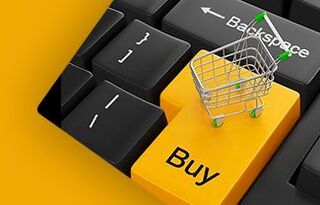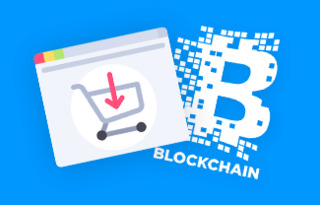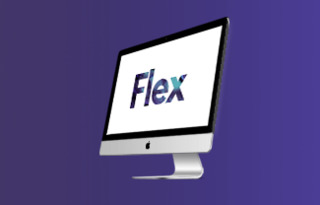
The competition between various marketplaces and retail networks has reached its peak. Each company is looking for a way to become more comfortable for its end users expectating this will increase their sales level and help to distinguish themselves from competitors. Therefore, as the most convenient and efficient way of paying on the Internet cryptocurrencies could help both in promoting young companies and helping giants establish themselves at the height of their influence. This top is created to list the most popular cryptocurrencies among the global marketplaces.
Bitcoin

Bitcoin is the first and the largest cryptocurrency that appeared in 2009. Its valuation reaches now an incredible sum of $2,000 billion. Being a parent to all the other options existing today, bitcoin started to win markets long before them. That’s why it’s no wonder this cryptocurrency was a pioneer in marketplaces’ adoption and now is the most widespread in the world.
The first retailer who supported bitcoin payments was Overstock.com. Jonathan Johnson, the company’s executive, confessed he doesn’t understand those competitors who don’t accept bitcoin. Moreover, Overstock was so excited with cryptocurrency concept that in August they announced that will start to accept payments in about 40 other coins. Among the most known of them are Ethereum, Litecoin, Dash, and more.
eBay Inc. and PayPal Holdings users can pay in bitcoins for a long time already. The integration with their daughter company Braintree allows these platforms to accept bitcoin payments.
Microsoft also takes part in cryptocurrency adoption. Since 2014 they introduced bitcoin payments in Windows and Xbox stores, and now are working on their Excel 2017 modification which will allow analyzing bitcoin.
Shopify Inc. is a platform for e-commerce stores quick build. By introducing bitcoin payments through BitPay they allowed all the merchants having e-stores on this platform akin to Etsy to utilize the digital assets power.
In early 2025, the introduction of Bitcoin ETFs marked a significant point of evolution, integrating crypto into mainstream portfolios and opening opportunities for institutions and retail investors. Over $50 billion has been channeled into Bitcoin ETFs. Bitcoin’s realized capitalization surpassed $850 billion, marking a rebound from the 2022 cryptocurrency downturn. By 2025, over 19 million out of the 21 million possible Bitcoins have been created. One analyst estimates Bitcoin’s market cap will reach $2.09 trillion in 2025
Ethereum

Ether isn’t so popular as bitcoin, however, it also owns a big audience (market capitalization: $318.44 billion) and is claimed to be the second-largest coin. Being focused on smart contracts, it’s accepted in a less number of online marketplaces. Nevertheless, ether is the second most popular digital coin to be accepted for goods. In addition to the Overstock.com mentioned before, the AlphaBay Dark Web marketplace started to accept ether payments in May 2017.
Bitcoin Cash

In 2017, Bitcoin underwent a “hard fork,” resulting in the creation of Bitcoin Cash, which currently has a market capitalization of $6.74 billion. The primary distinction between Bitcoin and Bitcoin Cash lies in transaction processing efficiency. Bitcoin is affected by slower speeds and significant price volatility, complicating its use for purchasing goods. Bitcoin Cash aims to solve these issues with an enhanced system that makes transactions cheaper.
For example, the recent Steam announcement about ceasing bitcoin payments at the platform claimed its blockchain was too slow to process transactions while the stock price skyrocketed. The prices grew faster than the blockchain processed the transactions, thus shortening the fees. In response to this claim, Roger Ver of Bitcoin Cash advocated for using Bitcoin Cash to eliminate the problem while allowing customers pay with digital money.
Litecoin

As of February 2025, Litecoin has a market capitalization of approximately $9.26 billion to $9.5 billion. With a circulating supply of 75,472,089 to 75,521,730.804 LTC, Litecoin is known for faster transactions and lower fees compared to Bitcoin, making it a reliable and efficient payment solution. Its quick transactions make it desirable for merchants, who utilize platforms like Coinify, BitPay, and Bitrefill to integrate it into their marketplaces.
Ripple

Mainly, Ripple is a blockchain solution for big financial institutions. XRP (Ripple digital currency) allows them to transfer cross-border payments without huge fees and get instant liquidity. In addition, this cryptocurrency is also one of the favorites among the marketplaces.
Conclusion
As it’s known, no guts, no glory. New payment options open brand new opportunities to business, attract more clients, and are the way to get and hold cryptocurrency. To start making digital money, research on the platforms supporting the coins you want to collect and the ways they could be integrated into your marketplace. Be sure: all the manipulations are definitely worth your while.










